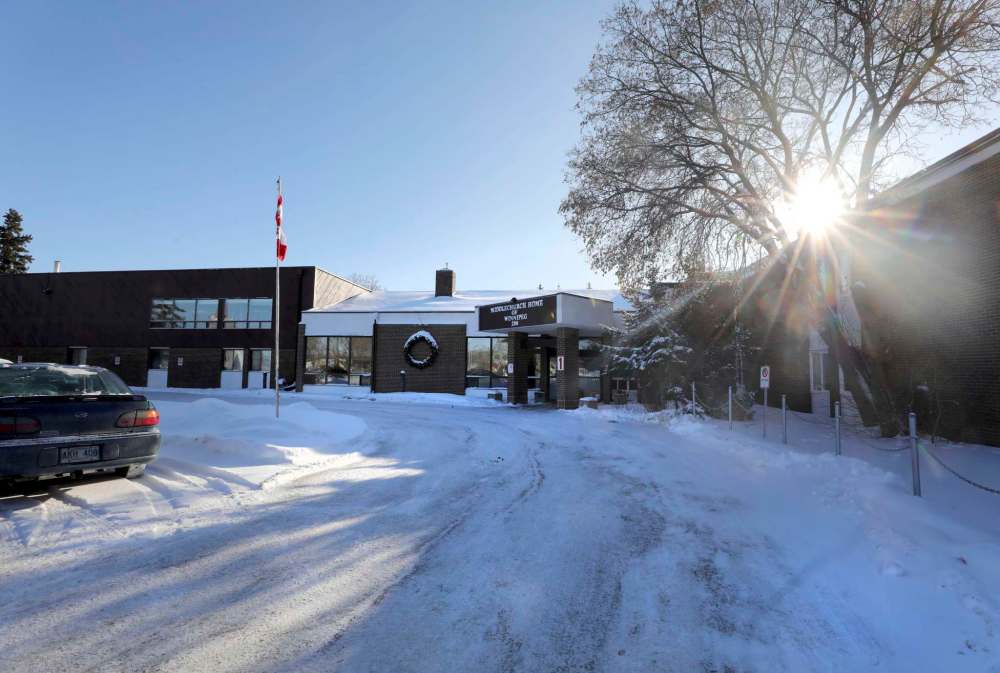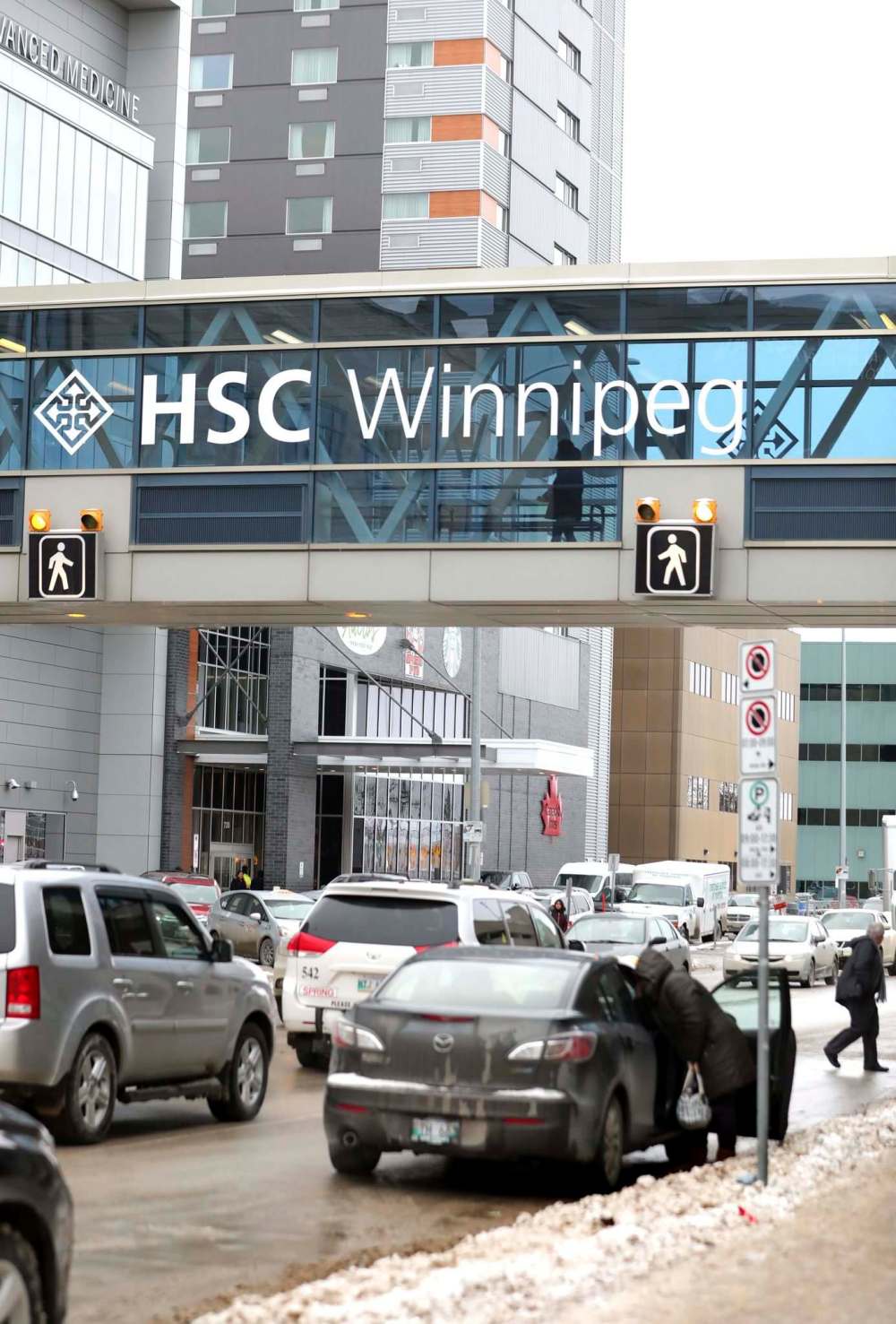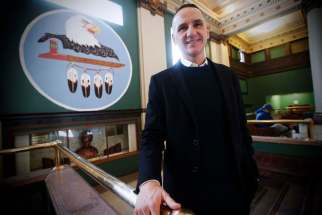Whistleblower law fails to protect Manitobans
Read this article for free:
or
Already have an account? Log in here »
To continue reading, please subscribe:
Monthly Digital Subscription
$0 for the first 4 weeks*
- Enjoy unlimited reading on winnipegfreepress.com
- Read the E-Edition, our digital replica newspaper
- Access News Break, our award-winning app
- Play interactive puzzles
*No charge for 4 weeks then price increases to the regular rate of $19.00 plus GST every four weeks. Offer available to new and qualified returning subscribers only. Cancel any time.
Monthly Digital Subscription
$4.75/week*
- Enjoy unlimited reading on winnipegfreepress.com
- Read the E-Edition, our digital replica newspaper
- Access News Break, our award-winning app
- Play interactive puzzles
*Billed as $19 plus GST every four weeks. Cancel any time.
To continue reading, please subscribe:
Add Free Press access to your Brandon Sun subscription for only an additional
$1 for the first 4 weeks*
*Your next subscription payment will increase by $1.00 and you will be charged $16.99 plus GST for four weeks. After four weeks, your payment will increase to $23.99 plus GST every four weeks.
Read unlimited articles for free today:
or
Already have an account? Log in here »
Hey there, time traveller!
This article was published 21/01/2020 (2153 days ago), so information in it may no longer be current.
Do the right thing. That admonishment is absorbed from earliest childhood and is reinforced by the education system, by religious faiths and by popular culture that abounds with morality tales of righteousness rewarded. The lesson is that things will work out well in the end for people who make good decisions.
Three local whistleblowers would beg to differ.
Blowing the whistle in Manitoba can bring reprisal rather than relief

Posted:
Around the time that a whistleblower turned U.S. President Donald Trump’s world upside down last summer, three local whistleblowers approached the Winnipeg Free Press to tell the stories of what happened to them when they attempted to reveal wrongdoing. One blew the whistle on past financial corruption at the Middlechurch nursing home, one exposed questionable surgical-instrument cleaning practices and one raised allegations that some Grace Hospital employees were threatening patient care by taking extra-long breaks or ending shifts early.
They approached the Free Press to offer examples of how they did the right thing and it resulted in extremely bad things happening to them personally. Their hardships demonstrate the need to improve Manitoba’s whistleblower protection law.
An instrument repair technician at Health Sciences Centre saw many examples of faulty maintenance of surgical equipment — for example, blood was allowed to dry on instruments, possibly contaminating them despite sterilization — and his revelations resulted in improved protocols at all hospitals. But instead of being thanked, the whistleblower said his superiors treated him like a troublemaker and made his work life intolerable. He lost 22 kilograms, went on stress leave and eventually resigned.
A woman who worked at the Middlechurch nursing home in West St. Paul went to top officials of the Winnipeg Regional Health Authority and the provincial ombudsman with documents to support her allegation: Middlechurch’s then-executive director was steering maintenance contracts worth hundreds of thousands of dollars to companies owned by the director’s husband and brother-in-law. But instead of being regarded as a hero for exposing what the ombudsman agreed was a “gross mismanagement” of public funds, the whistleblower suffered great stress and retaliation. Her identify was leaked — allegedly by a WRHA official — she lost her job and, five years later, remains unemployed.
An employee at Grace Hospital noted three of his workplace superiors consistently took two-hour lunches or quit an hour or two early. He reported them and, while he never learned whether his clock-cheating colleagues were ever disciplined, the whistleblower said he himself was bullied and harassed until he left on stress leave. He now works outside the health field.

A common denominator in these cases is that the retalitation against the whistleblowers has gone unpunished.
It’s true Manitoba has had whistleblower protection legislation since 2007 and the Manitoba Labour Board has dealt with 12 complaints alleging reprisal against whistleblowers. But none has been upheld.
The board’s track record of dismissing 100 per cent of reprisal allegations that weren’t subsequently withdrawn can mean one of two possible scenarios: whistleblowers don’t experience reprisals in Manitoba (as probable as sightings of a Sasquatch riding a unicorn), or the law protecting against reprisals was worthless.
The whistleblower protection law was amended 13 months ago and reprisal complaints must now first be made to the provincial ombudsman’s office. That office has yet to rule a reprisal has occurred.
Given these examples of Manitobans whose lives were ruined when they spoke out, who can blame would-be whistleblowers from being scared into silence?
It’s crucial that Manitoba make the changes necessary to give whistleblowers the protection promised in the name of law.
Experts in whistleblowing legislation offer ideas for improvement: many jurisdictions offer “reverse-onus” provisions, where it’s up to employers to prove reprisals are not taking place against whistleblowers. Some places ensure the officials who receive allegations of whistleblowing are completely independent from government.
Whatever it takes, it’s crucial that Manitoba make the changes necessary to give whistleblowers the protection promised in the name of law: The Public Interest Disclosure (Whistleblower Protection) Act.
The people on the inside of Manitoba’s workplaces are typically the first people to spot wrongdoing. When they expose problems, they deserve gratitude, not reprisals. They deserve a safe place to do the right thing.








